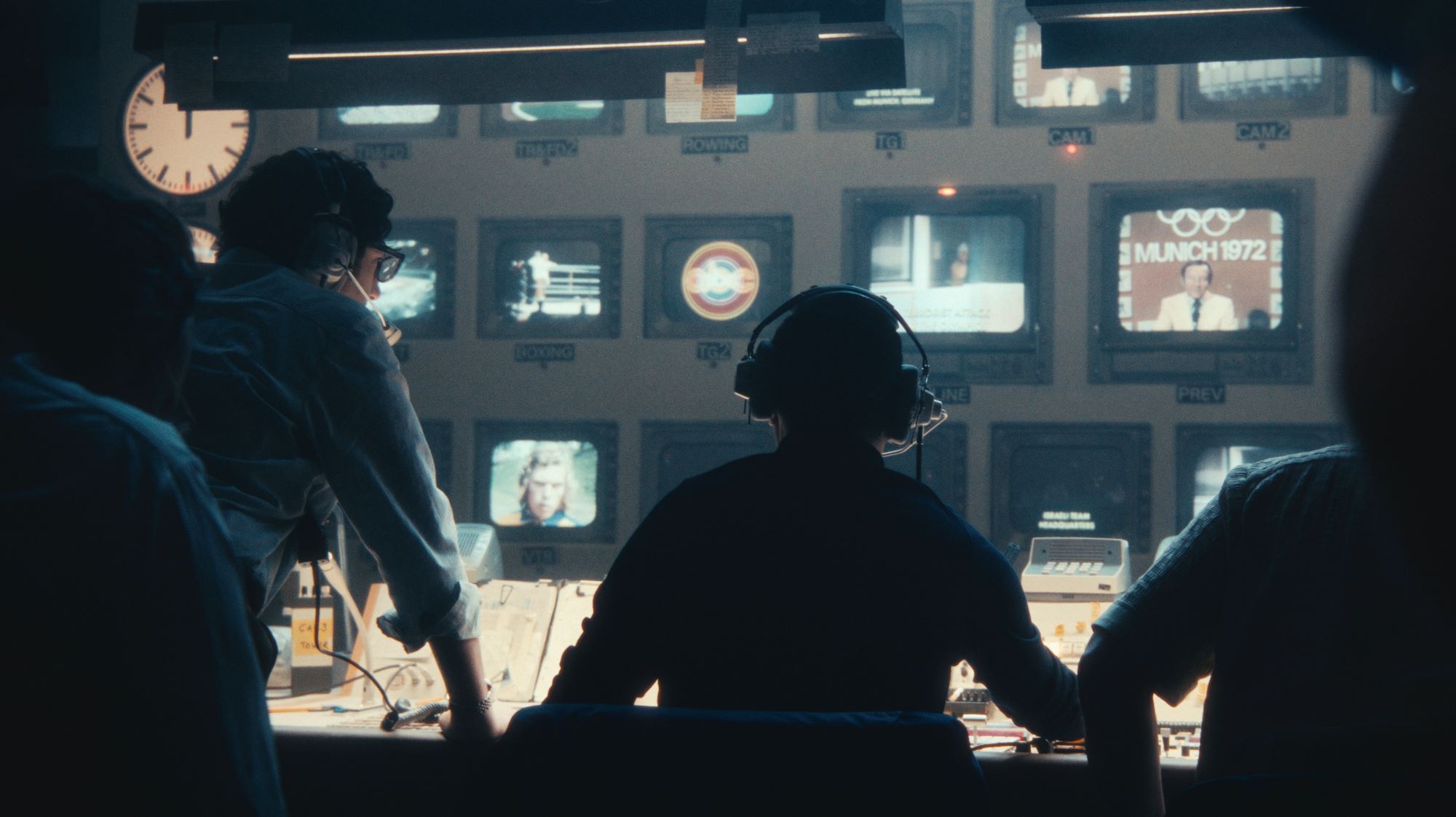
I have grown up watching historical, horrible and formative moments unfold live on TV, but September 5 takes us back to what was really the first of these moments. Filmmaker Tim Fehlbaum, with a cast that includes Peter Sarsgaard and John Magaro, creates a heart-pounding historical drama that incredibly recreates a defining moment of the 20th century, almost entirely in a single location, one that changed media forever.
The event is the 1972 Munich Olympics, where Israeli athletes were taken hostage by members of the terrorist group known as Black September inside the Olympic Village. September 5 chronicles the ABC Sports broadcast crew that is bringing the Olympics live to audiences in the US for the first time. However, when the hostage crisis begins they must go from tracking medals to following the story of whether or not these games meant to symbolize peace are going to be devastated beyond belief.
We know how it ends, but September 5 is still provides the incredible tension of seeing the events unfold as if for the first time (for my generation and those younger, this is the closest we’ll ever get to experiencing the events of that day). In fact, because we know what happens, the movie is able to draw out some of the tension as we wait for the various shoes to drop, which helps the movie have a gut punch effect.
Many may already be familiar with the events of the Munich Olympics from Steven Spielberg’s Munich, which depicted the attack by the terrorist group in the beginning but primarily focused on Israel’s own clandestine response. However, compressed into a tight and therefore an intensely gripping 91 minutes, September 5 recounts the event entirely from the ABC Sports broadcast room, as they figure out what is going on and how best to cover an event unlike anything that TV (still only a little more than 20 years old at the time) had seen before.
This unique perspective is a strong component of September 5. While we never lose track of the dangerous situation going on with the hostages, it is fascinating to see how this team gets creative to solve a myriad of issues to do something that had never been done before in broadcast history. This applies both technically and ethically, as you clearly see how the evolution of this moment became how we know TV to be today.
The execution of that vision, written excellently by Moritz Binder and then realized on the screen by Fehlbaum in his third movie, is impeccable. From the incredible recreation of the ABC Studio, to the mixture of archival footage, strong cinematography, perfectly placed editing and strong ensemble cast, September 5 grabs you and refuses to let go.
Speaking of the cast, it is led by Sarsgaard as veteran TV producer Roone Arledge and Magarao as Geoffrey Mason, getting his first shot to lead a production. The movie also features Ben Chaplin, Leonie Benesch, Zinedine Soualem and Benjamin Walker. Magaro gives one of the best performances of his career as Mason, expertly portraying his focus and determination to bring this story to the world, but also able to reflect on the horror of the situation in specific moments. A shout out also to Benesch, who plays a young German looking to show her worth to her American colleagues but also devastated that Germany is once again the site of violence against the Jewish people.
September 5 belongs among the pantheon of All the President’s Men, Good Night, and Good Luck and Best Picture winnerSpotlight, movies that capture the important role of journalism plays in our society. But it also stands out amongst its peers with its contained story and relentless energy, as well posing important questions of the role of TV news in covering events as they happen and how far is too far to bring viewers the story. Overall, September 5 is an enthralling combination of historical drama and thriller that'll stick with you.
September 5 releases in select US movie theaters on November 29 before expanding to additional locations in December.







